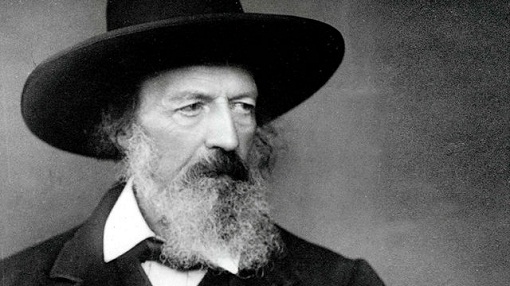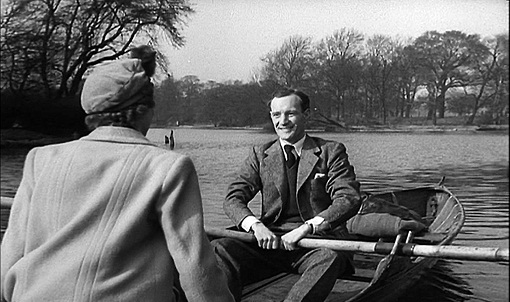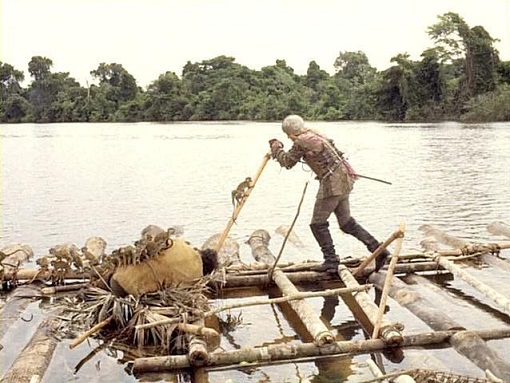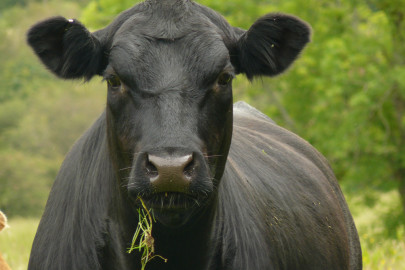Ruskin, as we discovered earlier this week, knew a thing or two about hawthorn blossom. But was he right about Tennyson’s marshy punting? And what are Spiritual Boats? Frank investigates…
In the poetry of Tennyson, boating has “a very marshy and punt-like character”. This is the view of John Ruskin, in The Harbours Of England (1856), in a passage where he claims all poets “somehow or other, express an honest wish for a Spiritual Boat”.
Now I have not read enough of Tennyson’s work to assess whether Ruskin is correct. I have certainly not been through it with a fine-toothed comb, noting down all Tennyson’s boating references and judging the marshiness and punt-like character of each, although it occurs to me that such an enquiry would actually be quite easily achieved, armed with a twenty-first century digitised e-edition of the complete works of Tennyson. Perhaps I will save that study for a rain-soaked winter’s day, or an insomniac night.For the time being, I am minded to trust Ruskin on the matter. I do not think it likely that the greatest of all Victorian writers would have said Tennyson’s boating was marshy and punt-like if it was not. And, in fairness, it should be noted that Ruskin qualifies his remark by saying that the poet’s boating “in the ordinary way [my italics], has a very marshy and punt-like character”. We might also bear in mind that when Ruskin was writing, in 1856, Tennyson was only forty-seven years old, and he lived, and continued to pour out poetry, for a further thirty-six years, dying in 1892 at the age of eighty-three. Again, I am insufficiently familiar with his work to know whether, in those post-The Harbours Of England years, Tennyson’s boating may have emerged from the punty marshes on to the wide and billowing seas. That is something else I can find out on a rain-soaked winter’s day or during an insomniac night. It is always a good idea to have a number of projects in hand, to keep the brain perky.
Perkiness is not, however, the usual sensation one experiences when punting through marshes, or even when rowing through marshes. There is a sense in which one is forced to use one’s oar more like a punt in a marsh in any case. Clean, brisk rowing becomes, at first difficult, then well nigh impossible, as one creeps further into the marsh and one’s oars become entangled with weeds. The thicker the weed, the greater the entanglement, the more desperate the rower. Sooner or later, one has to plunge the oar as near as dammit vertically, like a punt, into the marsh water, in hope of gaining sufficient purchase to push oneself free of weed-entanglement. It is difficult to think of a waterborne experience less like the Spiritual Boat wished for by all poets.
Consider, for example, the boating pickle of Dr Alec Harvey, played by Trevor Howard in Brief Encounter (David Lean, 1945). Dr Harvey and his soon-to-be-acknowledged-as-such inamorata Laura Jesson (Celia Johnson) are not even on a marsh, but on a boating lake in a park. They are indeed perky. But by dint of what we might term “issues” with the steering of the boat, Dr Harvey is forced – as if he were stuck in a Tennysonian marsh – to stand up and plunge the oar into the water as near as dammit vertically in hope of gaining purchase to push. He falls into the lake. This is an important episode in the film, in that it immediately precedes the scene where Dr Harvey and Mrs Jesson first broach, in repressed and almost strangulated conversation, the fact that they are besotted with each other. In that sense – and perhaps only in that sense – the boat out of which Dr Harvey falls into the lake can be seen as a Spiritual Boat, one worthy of attention by a poet. I do not know if any versifier has ever composed a poem upon this scene in the film, but I for one would like to have read what, say, Sylvia Plath might have made out of it. Unlike Dr Harvey and Mrs Jesson, Sylvia Plath and her inamorato Ted Hughes do not seem to have suffered from that tendency to be “withdrawn and shy and… difficult”, as Mrs Jesson puts it. Indeed, when they first met, and kissed, Sylvia Plath drew blood from Ted Hughes’s cheek, or it might have been the other way about, I can never quite remember. Whichever it was, there is no such savage bloody kiss in Brief Encounter. In a rewritten, updated version, perhaps there could be, while the couple are in the boat on the lake in the park, before Dr Harvey falls in to the water.
There is another filmic boat, or rather raft, which becomes hopelessly stuck in a marsh, or rather on a river, in Aguirre, The Wrath Of God (Werner Herzog, 1972). Here we can well imagine blood being spilled, though not by kisses. And though we have a raft on a river rather than a boat on a marsh, few I think would argue that the ambience, especially towards the end of the film, is close to what Ruskin called Tennyson’s “marshy and punt-like” boating. Also, there are monkeys. Lope de Aguirre’s raft is, spectacularly, a Spiritual Boat, and would have made an ideal subject for either Sylvia or for Ted, had they once decided to turn their poetic brains towards it.
Tennyson, too, might profitably have addressed the story. Though he was of course long cold in his grave before Werner Herzog made his film, Aguirre is based on real events that took place in 1561, events known about by, for example, Sir Walter Ralegh, who read about them before swanning off to discover El Dorado in 1595. Intriguingly, at the time he was preparing for his expedition, Ralegh was living at Sherborne Lodge in Devon. As Charles Nicholl describes it in The Creature In The Map (1995), “the Lodge stood on rough land above a boggy stretch of the Yeo known as Black Marsh”. Did Ralegh go boating on Black Marsh? Did his oar or punt become entangled in weed and did he plunge the oar in as near as dammit vertically in hope of gaining sufficient purchase to push himself free and, like Dr Harvey, topple out of his boat into the water? And were there, as with Aguirre, monkeys?
There is a poem to be written about such a scene.














Thing is though but, nothing marshy about ‘ole Shalott’s dingy, she got to write her own name on the side. The problem was, would you wish to publicly associate your name with a little onion. Lance of course, the cause of all of this bother, thought it a very fine sight, as the sturdy craft swifly carried the sturdy tot totty past the ramparts.
whither the withy beds?
Don’t know about the punting, but Tennyson was certainly something of a marsh wiggle – he had the hat, the hair, the profound sense of melancholy, and above all the love of lonely, waterlogged, windswept places. The really good bits of Tennyson are nearly all evocations of the marsh (or as he preferred ‘marish’) of Lincolnshire – not the Fens proper, but the low-lying strip between the Wolds and the sea:
… the waste enormous marsh,
Where from the frequent bridge,
Like emblems of infinity,
The trenchèd waters run from sky to sky.
Probably the best known example is a verse from the famously drear Mariana at the Moated Grange:
About a stone-cast from the wall
A sluice with blacken’d waters slept,
And o’er it many, round and small,
The cluster’d marish-mosses crept.
Hard by a poplar shook alway,
All silver-green with gnarled bark:
For leagues no other tree did mark
The level waste, the rounding gray.
But there’s also ‘The Dying Swan’:
One willow over the river wept,
And shook the wave as the wind did sigh;
…And far thro’ the marish green and still
The tangled water-courses slept,
Shot over with purple, and green, and yellow.
… the creeping mosses and clambering weeds,
And the willow-branches hoar and dank,
And the wavy swell of the soughing reeds,
And the wave-worn horns of the echoing bank,
And the silvery marish-flowers that throng
The desolate creeks and pools among …
Not to mention these little-known lines, which he is said to have written in Mablethorpe, of all places:
And here again I come, and only find
The drain-cut level of the marshy lea,
Gray sand-banks, and pale sunsets, dreary wind,
Dim shores, dense rains, and heavy-clouded sea.
This stuff speaks to me somewhat as I grew up in an equally soggy landscape, the levels and moors of central Somerset. Indeed, one of my earliest memories of poetry clings to the tiny willow-lined lanes around Burrowbridge, where we would often steer the old Austin 7 on the way to and from Taunton. One of the ragged farms down there used to have a scrawled sign offering garden products for sale, including best shallots, half pound a shilling, whatever. My mum would always make some joke about the Lady of Shallott and perhaps quote:
Willows whiten, aspens quiver,
Little breezes dusk and shiver,/i>
And if you looked out of the car window, that is what you saw.
Don’t know about the punting, but Tennyson was certainly something of a marsh wiggle – he had the hat, the hair, the profound sense of melancholy, and above all the love of lonely, waterlogged, windswept places. The really good bits of Tennyson are nearly all evocations of the marsh (or as he preferred ‘marish’) of Lincolnshire – not the Fens proper, but the low-lying strip between the Wolds and the sea:
… the waste enormous marsh,
Where from the frequent bridge,
Like emblems of infinity,
The trenchèd waters run from sky to sky.
Probably the best known example is a verse from the famously drear ‘Mariana at the Moated Grange’:
About a stone-cast from the wall
A sluice with blacken’d waters slept,
And o’er it many, round and small,
The cluster’d marish-mosses crept.
Hard by a poplar shook alway,
All silver-green with gnarled bark:
For leagues no other tree did mark
The level waste, the rounding gray.
But there’s also ‘The Dying Swan’:
One willow over the river wept,
And shook the wave as the wind did sigh;
…And far thro’ the marish green and still
The tangled water-courses slept,
Shot over with purple, and green, and yellow.
… the creeping mosses and clambering weeds,
And the willow-branches hoar and dank,
And the wavy swell of the soughing reeds,
And the wave-worn horns of the echoing bank,
And the silvery marish-flowers that throng
The desolate creeks and pools among …
Not to mention these little-known lines, which he is said to have written in Mablethorpe, of all places:
And here again I come, and only find
The drain-cut level of the marshy lea,
Gray sand-banks, and pale sunsets, dreary wind,
Dim shores, dense rains, and heavy-clouded sea.
This stuff speaks to me somewhat as I grew up in an equally soggy landscape, the levels and moors of central Somerset. Indeed, one of my earliest memories of poetry clings to the tiny willow-lined lanes around Burrowbridge, where we would often steer the old Austin 7 on the way to and from Taunton. One of the ragged farms down there used to have a scrawled sign offering garden products for sale, including best shallots, half pound a shilling, whatever. My mum would always make some joke about the Lady of Shallott and perhaps quote:
Willows whiten, aspens quiver,
Little breezes dusk and shiver
And if you looked out of the car window, that is what you saw.
Thank goodness for restraint, no commementer has brought up the subject of that h2o of poems, the vicar of Bockingham.
Mostly I remember the Lady of Shalott as cropping up as exemplar in one of Wodehouse’s stories, probably a Mulliner one.
I find it hard to come up with good examples of Spiritual Boats in poetry. Homer’s seem awfully fleshy, though one did take Odysseus and his crew to Hades and back. The spirits in The Tempest are located ashore, no? Yeats must have taken a boat to the Lake Isle of Innisfree, unless he swam, and he does write vaguely of sailing to Byzantium. Perhaps I need to look at Ruskin to find out what he means.